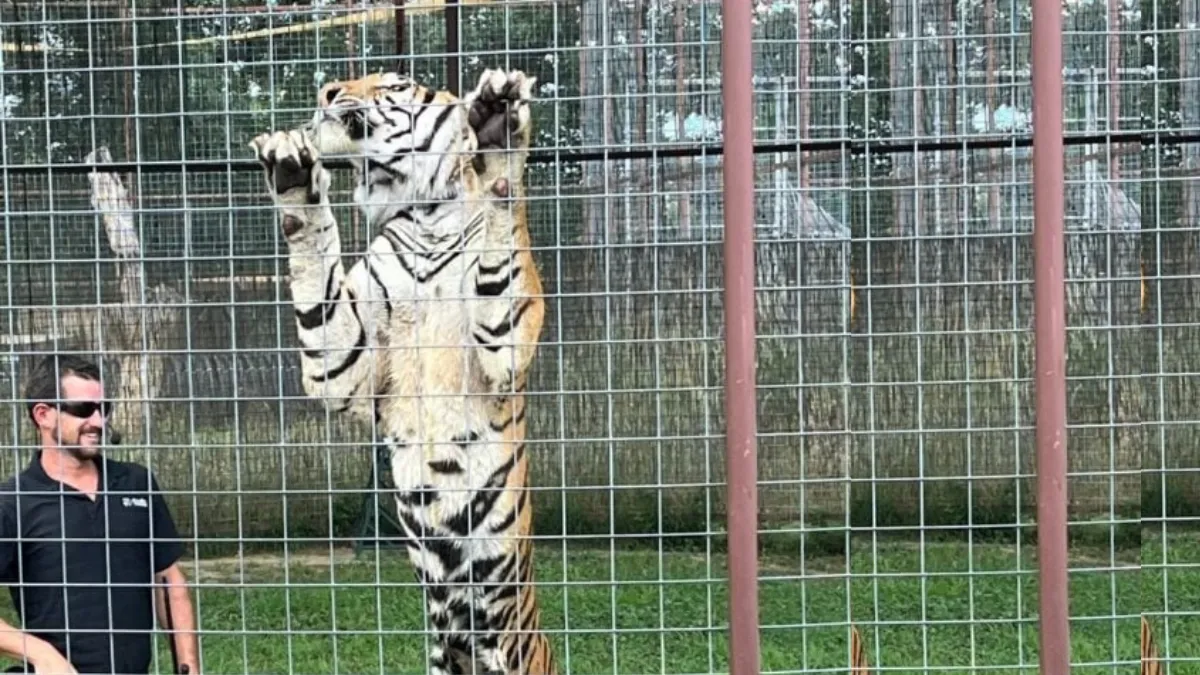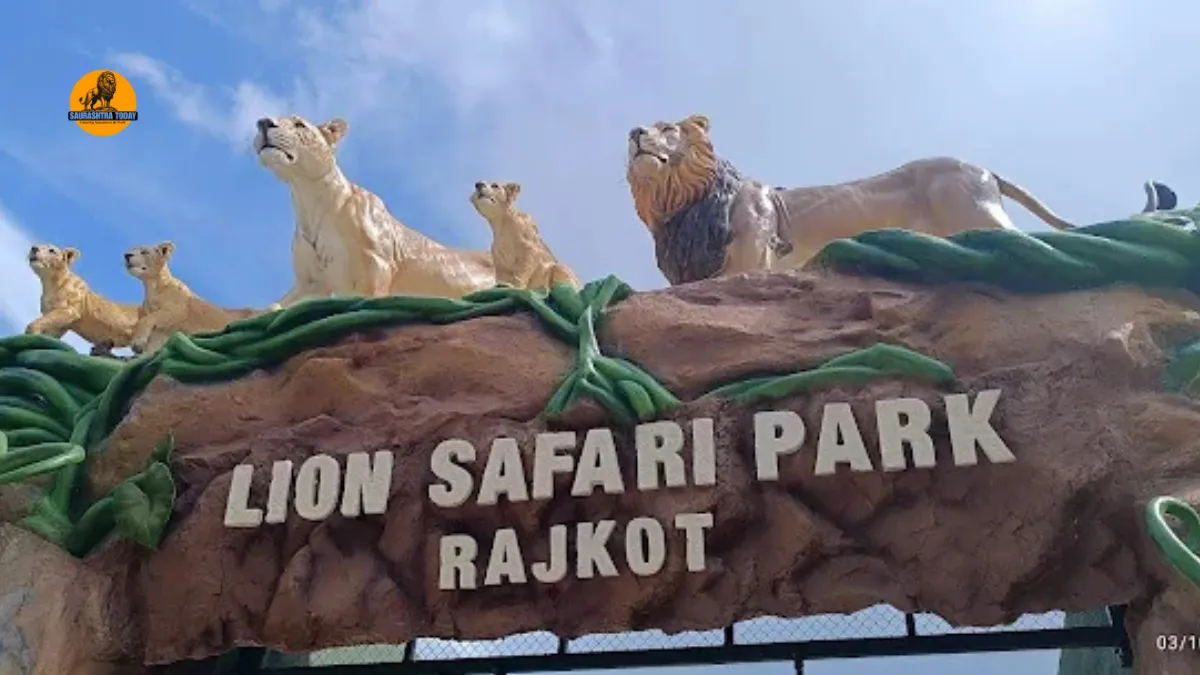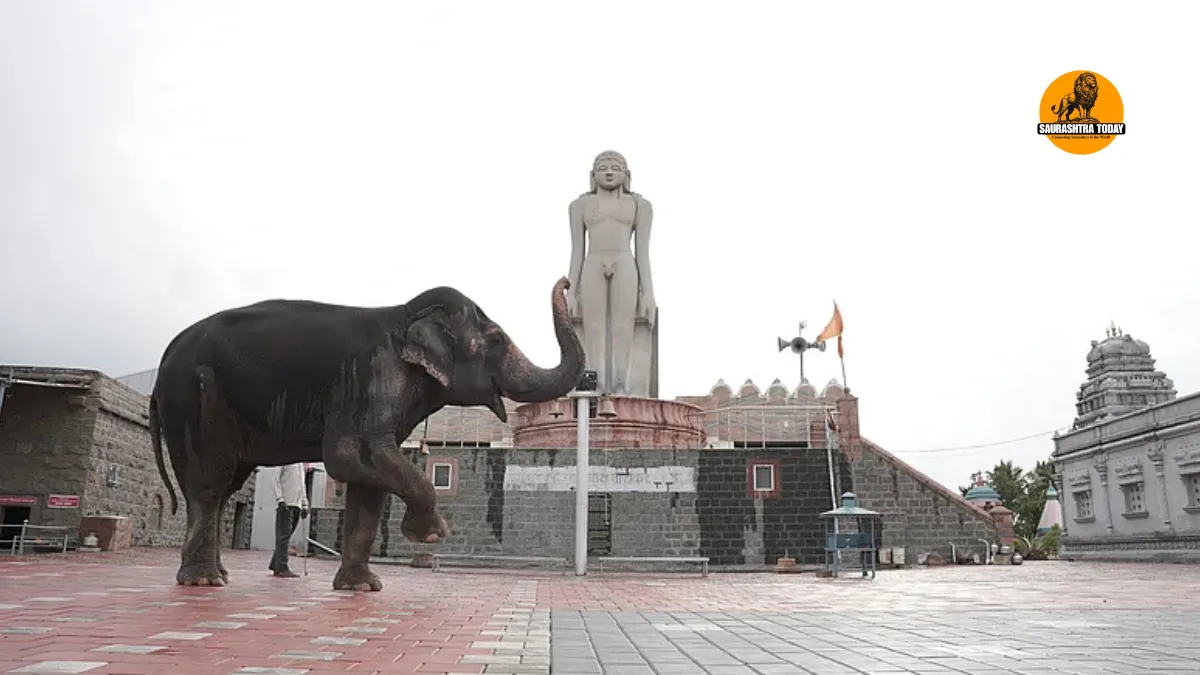HUGO, Oklahoma – A shocking incident at the Oklahoma-based roadside zoo, Growler Pines Tiger Preserve, has left the exotic animal community and local authorities stunned. The facility’s owner, Ryan Easley, was tragically killed by a tiger he owned, reportedly in full view of visitors, including children. Following this fatal attack, animal rights organization PETA has sent an urgent letter to the U.S. Department of Agriculture (USDA), urging the federal agency to revoke the zoo’s license and prevent any future issuance of permits to Easley’s associates.
According to PETA, Easley’s repeated insistence on close contact with dangerous apex predators had put both humans and animals at serious risk. Debbie Metzler, Senior Director of Captive Wildlife at the PETA Foundation, stated, “Ryan Easley had a long history of caging, whipping, and abusing tigers, and no one associated with him has any business working around animals. PETA urges the USDA to refuse to issue Growler Pines Tiger Preserve a new license, as this reckless operation has proven it cannot keep humans or animals safe.”
History of Abuse and Controversial Practices
Ryan Easley was known for acquiring tigers from notorious figures such as Joseph Maldonado, widely known as Joe Exotic, and Bhagavan “Doc” Antle, infamous for their controversial roles in the Tiger King saga. Easley operated ShowMe Tigers and frequently transported these large predators across the country. Reports indicate that these tigers were forced to perform in circuses, including the Shrine and Carden Circuses, and were kept in cages for long hours when not performing.
In 2017, Easley was recorded violently whipping a tiger during a training session, reportedly striking one animal 31 times. Additionally, during the winter months, Easley boarded tigers in cramped cages at Joe Exotic’s former roadside zoo, G.W. Exotic Animal Park. These incidents highlight a long pattern of mistreatment and neglect, raising questions about the ethical treatment of exotic animals under his care.
PETA Calls for Immediate Action
The fatal attack at Growler Pines Tiger Preserve has intensified calls for stricter oversight of private exotic animal facilities. PETA emphasizes that the USDA should revoke Easley’s license to prevent further tragedies. “Animals are not ours to use for entertainment,” the organization reiterated, referencing its initiative, Every Animal Is Someone, which offers free Empathy Kits to educate the public about kindness toward animals.
Local authorities and animal welfare advocates have also stressed the inherent dangers of allowing untrained individuals to handle tigers and other apex predators. These animals, by nature, are unpredictable and potentially lethal, making direct human contact extremely hazardous.
Roadside Zoos and Public Safety Concerns
The incident underscores the risks associated with roadside zoos, where animals are often kept in confined spaces and subjected to forced performances for visitors. Experts have warned that such facilities prioritize profit over the well-being of the animals and the safety of the public. While some roadside zoos operate legally under USDA regulations, lapses in safety protocols can have tragic consequences, as seen at Growler Pines Tiger Preserve.
Animal welfare advocates argue that large predators like tigers belong in accredited sanctuaries or wildlife preserves where they can live in conditions closer to their natural habitats. Keeping them in small enclosures for entertainment purposes is both ethically questionable and inherently dangerous.
Ethical and Legal Implications
Ryan Easley’s death has sparked nationwide debate about the ethical implications of exotic animal ownership in the United States. While some private zoos are licensed to exhibit animals legally, incidents like this highlight the need for stricter enforcement of regulations, regular safety audits, and more rigorous monitoring. Authorities may now consider permanent revocation of Growler Pines Tiger Preserve’s license to prevent further harm to both humans and animals.
The Future of Growler Pines Tiger Preserve
With federal authorities reviewing Easley’s license, the future of Growler Pines Tiger Preserve is uncertain. If the license is revoked, the facility may close, and the tigers and other animals will likely need relocation to accredited sanctuaries or wildlife preserves that adhere to high animal welfare standards. This tragic event also serves as a warning for similar facilities, emphasizing that the public should avoid places where safety measures are minimal and animal welfare is compromised.
Also read: World Cassowary Day 2025: Celebrating and Protecting the World’s Most Dangerous Bird
Conclusion
The fatal tiger attack at Growler Pines Tiger Preserve highlights the ongoing conflict between human fascination with exotic animals and the ethical responsibility to ensure safety for both humans and wildlife. PETA’s call to revoke the facility’s license reflects a growing movement toward stricter animal welfare regulations and increased public awareness of the risks posed by private exotic animal ownership.
As federal authorities investigate the incident, this tragedy may lead to stronger regulations, better oversight, and improved conditions for captive wildlife across the United States. Advocates hope that such measures will prevent future accidents and ensure that both humans and animals can coexist safely and ethically.
















